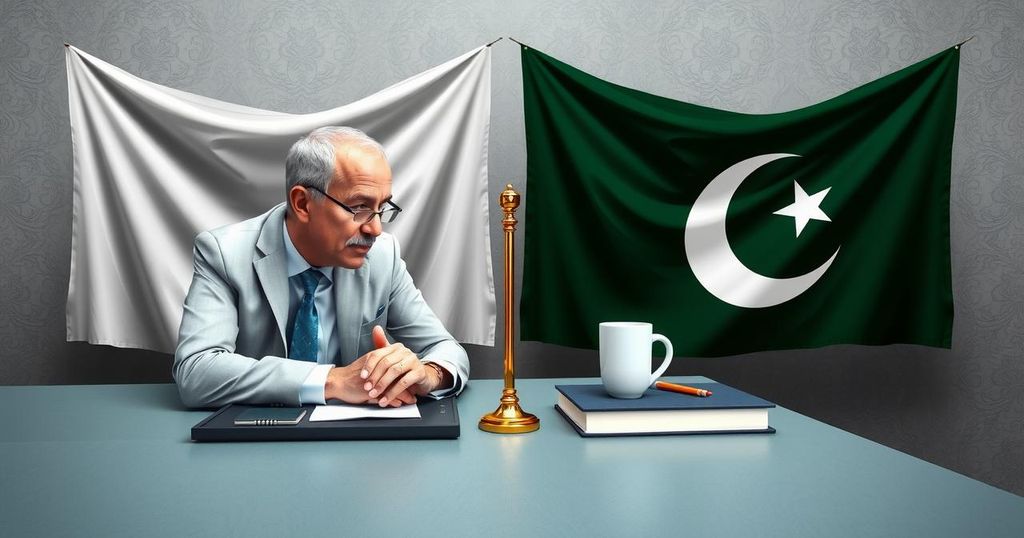Javier Milei’s presidency in Argentina has led to a dramatic economic turnaround, with inflation rates dropping from 211 percent to single digits. His calls for cutting government size and eradicating regulations have inspired comparisons to potential leaders in Pakistan. However, his controversial views raise concerns regarding his understanding of economic history, necessitating a cautious approach to emulating his policies in Pakistan.
Argentina bears notable similarities to Pakistan, having once stood as a prominent economy but now grappling with long-standing economic issues necessitating repeated interventions from the International Monetary Fund (IMF). The emergence of Javier Milei as Argentina’s president has markedly transformed its economic landscape, surprising many with the speed of recovery. Upon his election, inflation soared to an astonishing 211 percent but has since plummeted to single digits under his leadership, alleviating the financial burden faced by citizens.
Milei’s commitment to downsizing government and deregulating the economy has garnered attention and admiration, including calls within Pakistan for a leader with a similar approach to combat chronic economic challenges. Discussions surrounding his reforms are articulated in an enlightening podcast with Lex Friedman, wherein Milei elaborates on his measures to eliminate bureaucratic inefficiencies, which contributed significantly to fiscal deficits and high inflation rates.
His advocacy for reducing inflation, abolishing price controls, and fostering purchasing power illustrates a pragmatic approach that resonates widely. He also critiques taxpayer-funded contracts that lead to corruption, pointing out the detrimental effects of media corruption and the suppression of independent media platforms. This analysis aligns closely with Pakistan’s own inflationary struggles.
However, Milei’s viewpoints raise concerns, particularly his favorable views on the United States and Israel as ‘liberal democracies’, which starkly contrast with the Palestinian plight and undermine claims of his commitment to freedom. Furthermore, his revisionist economic history, particularly regarding the growth dynamics of various past empires and eras, lacks nuance and is criticized for being overly Eurocentric. He erroneously asserts that the conditions during the Industrial Revolution afforded a better quality of life than that which existed during Roman times, ignoring the harsh realities faced by workers of that period.
Milei’s interpretations of economic theories, especially those of classic economists like Adam Smith, can also be misleading. He simplifies complex historical economic contexts and neglects the fundamental critiques present in the works of significant economic thinkers. His advocacy for dollarization, which implies surrendering control over a nation’s monetary policy to the United States, raises questions about the implications for national sovereignty and freedom.
For Pakistan, a version of Milei may be beneficial, one that possesses a profound understanding of the country’s unique economic intricacies and is willing to dismantle bureaucratic hurdles. The challenge lies in encouraging transformative economic policies without embracing the problematic ideologies that undermine comprehensive understanding of economic history.
The economic situations in Argentina and Pakistan reflect decades of instability and mismanagement, characterized by reliance on the IMF for bailouts. Argentina’s recent political shift with Javier Milei’s presidency marks a significant attempt to rectify its economic crisis through aggressive reform and deregulation. This article evaluates Milei’s strategies and their implications for Pakistan’s own ongoing economic struggles, calling for a leader capable of similar transformative change while cautioning against adopting polarizing ideologies.
Javier Milei’s presidency in Argentina has sparked a conversation about the potential for similar leadership in Pakistan amid its own economic difficulties. While his strategies for reducing inflation and dismantling inefficiencies are commendable, his controversial views on freedom and economic history highlight the need for a balanced approach. Pakistan would benefit from a leader inspired by Milei’s economic principles yet free from biases that cloud critical understanding of historical economic contexts. The pursuit of true economic reform requires both courage and comprehensive awareness of historical intricacies.
Original Source: www.dawn.com






